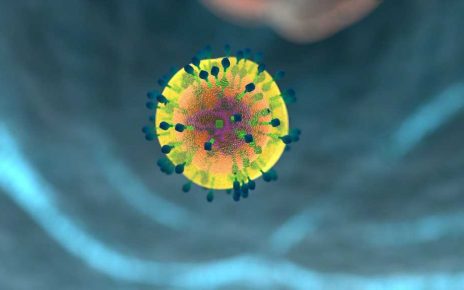Liver disease: Doctor discusses causes and symptoms
We use your sign-up to provide content in ways you’ve consented to and to improve our understanding of you. This may include adverts from us and 3rd parties based on our understanding. You can unsubscribe at any time. More info
The liver is one of our vital organs, serving more than 500 bodily functions. One such function is taking potentially harmful substances found in the body and making them harmless. However, if there is a problem with the liver these toxins can enter the bloodstream and make their way to other areas.
This can happen in severe cases of fatty liver disease.
As the name suggests, fatty liver disease – also known as non-alcoholic fatty liver disease – occurs when there is an excess of fat in the liver.
Initially this does not cause symptoms but if it progresses it can become dangerous.
After years of inflammation the organ can become shrivelled, lumpy and scarred, which is the fourth and final stage of fatty liver disease known as cirrhosis.

In extreme cases cirrhosis can advance to liver failure and even liver cancer.
However, it can also have an impact on the brain.
Hepatic encephalopathy is the name for changes in the brain caused by acute or chronic liver disease.
The British Liver Trust says: “It is one of the major complications of cirrhosis.”
Don’t miss…
Mum planning her own funeral at 37 after itch turned out to be cancer [CANCER]
Expert shares five ‘unusual’ symptoms of skin cancer [EXPERT]
The sweet treat that could prevent vision loss – expert [INSIGHT]
It explains how it occurs. “One of the most important things the liver does is to change potentially damaging substances that are either made by or taken in by the body and make them harmless,” the trust says.
“However, if the liver is badly damaged and unable to function properly, these ‘toxins’ can build up in the bloodstream.
“If they enter the brain, they can result in a condition called hepatic encephalopathy.”
Symptoms of hepatic encephalopathy
Hepatic encephalopathy can be confused with dementia due to its effect on the brain.

Dementia is also commonly found in patients with hepatic encephalopathy.
One study, published in The American Journal of Gastroenterology, said: “Dementia is commonly diagnosed in patients with cirrhosis and correlates with a diagnosis of hepatic encephalopathy, independent of alcohol use, brain injury, age, and other metabolic risk factors.”
The liver trust shared symptoms of the condition: “Hepatic encephalopathy symptoms can range from mild to severe and can vary from person to person.
“Symptoms can develop rapidly or slowly over a period of time. Patients with hepatic encephalopathy can have both physical symptoms and reduced mental function.”

Early symptoms include:
- Confusion
- Forgetfulness
- Personality or mood changes
- Stale or sweet odour on the breath
- Poor judgement
- Poor concentration
- Change in sleep patterns
- Worsening of handwriting or small hand movement.
In more severe cases it can lead to:
- Unusual movements or shaking of hands or arms
- Extreme anxiety
- Seizures
- Severe confusion
- Sleepiness or fatigue
- Severe personality changes
- Jumbled and slurred speech
- Slow movement.
Treatment of hepatic encephalopathy will include identifying and treating the original cause of it.
Factors that can increase your risk of fatty liver disease include being overweight or obese, having type 2 diabetes, high blood pressure, high cholesterol and smoking.
If you think you have fatty liver disease or hepatic encephalopathy you should see your GP.
Source: Read Full Article



